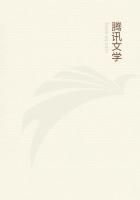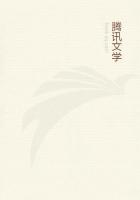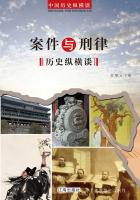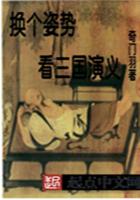Edward Bok has often been referred to as the one "who made The Ladies'
Home Journal out of nothing," who "built it from the ground up," or, in similar terms, implying that when he became its editor in 1889 the magazine was practically non-existent.This is far from the fact.The magazine was begun in 1883, and had been edited by Mrs.Cyrus H.K.
Curtis, for six years, under her maiden name of Louisa Knapp, before Bok undertook its editorship.Mrs.Curtis had laid a solid foundation of principle and policy for the magazine: it had achieved a circulation of 440,000 copies a month when she transferred the editorship, and it had already acquired such a standing in the periodical world as to attract the advertisements of Charles Scribner's Sons, which Mr.Doubleday, and later Bok himself, gave to the Philadelphia magazine--advertising which was never given lightly, or without the most careful investigation of the worth of the circulation of a periodical.
What every magazine publisher knows as the most troublous years in the establishment of a periodical, the first half-dozen years of its existence, had already been weathered by the editor and publisher.The wife as editor and the husband as publisher had combined to lay a solid basis upon which Bok had only to build: his task was simply to rear a structure upon the foundation already laid.It is to the vision and to the genius of the first editor of The Ladies' Home Journal that the unprecedented success of the magazine is primarily due.It was the purpose and the policy of ****** a magazine of authoritative service for the womanhood of America, a service which would visualize for womanhood its highest domestic estate, that had won success for the periodical from its inception.It is difficult to believe, in the multiplicity of similar magazines to-day, that such a purpose was new; that The Ladies'
Home Journal was a path-finder; but the convincing proof is found in the fact that all the later magazines of this class have followed in the wake of the periodical conceived by Mrs.Curtis, and have ever since been its imitators.
When Edward Bok succeeded Mrs.Curtis, he immediately encountered another popular misconception of a woman's magazine--the conviction that if a man is the editor of a periodical with a distinctly feminine appeal, he must, as the term goes, "understand women." If Bok had believed this to be true, he would never have assumed the position.How deeply rooted is this belief was brought home to him on every hand when his decision to accept the Philadelphia position was announced.His mother, knowing her son better than did any one else, looked at him with amazement.She could not believe that he was serious in his decision to cater to women's needs when he knew so little about them.His friends, too, were intensely amused, and took no pains to hide their amusement from him.They knew him to be the very opposite of "a lady's man," and when they were not convulsed with hilarity they were incredulous and marvelled.
No man, perhaps, could have been chosen for the position who had a less intimate knowledge of women.Bok had no sister, no women confidantes: he had lived with and for his mother.She was the only woman he really knew or who really knew him.His boyhood days had been too full of poverty and struggle to permit him to mingle with the opposite ***.And it is a curious fact that Edward Bok's instinctive attitude toward women was that of avoidance.He did not dislike women, but it could not be said that he liked them.They had never interested him.Of women, therefore, he knew little; of their needs less.Nor had he the slightest desire, even as an editor, to know them better, or to seek to understand them.
Even at that age, he knew that, as a man, he could not, no matter what effort he might make, and he let it go at that.
What he saw in the position was not the need to know women; he could employ women for that purpose.He perceived clearly that the editor of a magazine was largely an executive: his was principally the work of direction; of studying currents and movements, watching their formation, their tendency, their efficacy if advocated or translated into actuality; and then selecting from the horizon those that were for the best interests of the home.For a home was something Edward Bok did understand.He had always lived in one; had struggled to keep it together, and he knew every inch of the hard road that makes for domestic permanence amid adverse financial conditions.And at the home he aimed rather than at the woman in it.
It was upon his instinct that he intended to rely rather than upon any knowledge of woman.His first act in the editorial chair of The Ladies'
Home Journal showed him to be right in this diagnosis of himself, for the incident proved not only how correct was his instinct, but how woefully lacking he was in any knowledge of the feminine nature.
He had divined the fact that in thousands of cases the American mother was not the confidante of her daughter, and reasoned if an inviting human personality could be created on the printed page that would supply this lamentable lack of American family life, girls would flock to such a figure.But all depended on the confidence which the written word could inspire.He tried several writers, but in each case the particular touch that he sought for was lacking.It seemed so ****** to him, and yet he could not translate it to others.Then, in desperation, he wrote an installment of such a department as he had in mind himself, intending to show it to a writer he had in view, thus giving her a visual demonstration.He took it to the office the next morning, intending to have it copied, but the manuscript accidentally attached itself to another intended for the composing-room, and it was not until the superintendent of the composing-room during the day said to him, "Ididn't know Miss Ashmead wrote," that Bok knew where his manuscript had gone.
Miss Ashmead?" asked the puzzled editor.

